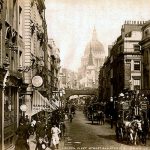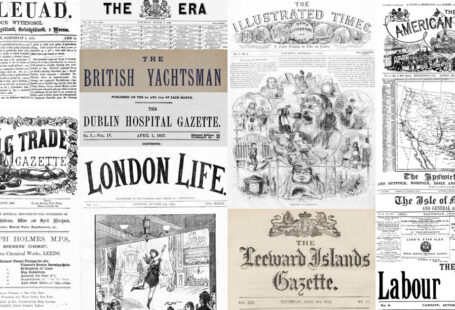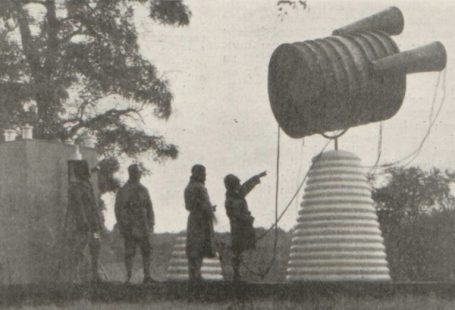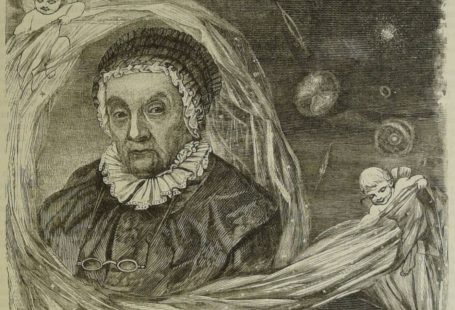Preserving local history is at the core of what we do here at The British Newspaper Archive. Every week we add thousands of pages to the Archive from county and regional newspapers. These papers are filled with the long-forgotten news from the villages and towns of Ireland, England, Scotland and Wales. No village is too small, and no place is too obscure to find its way into the newspapers. The Archive is the single-best research tool for re-creating the history of a locality.

Local History
Local history like its sister discipline social history is about re-creating the history of the ordinary. The people and events that shaped their community but are now largely forgotten. For most people life was lived on a local scale. Certainly some national and international events impacted their lives, but for the most part the events that affected their day to day lives were those of their immediate surroundings. Even those who migrated long distances had two points of reference, their old community, a street or a village rather than a country, and their new community, which again was probably a small area. Indeed it really wasn’t until 19th century that we get the nations that we have today. Life was lived at such a local level that before the coming of the railways towns only a few miles apart could be in different time zones!
Local news in the papers
In order to appeal to a local audience, and to build up a loyal readership to purchase the paper week after week local newspapers needed to include local stories to keep their readers interested.
The typical layout for a historic newspaper was a front page devoted to advertisements with the news starting on page two. The news was then split into international or national news, and then a section specifically for ‘local and district news’ as it was often called. Depending on the size of the newspaper, and indeed the size of the area it served, local news could form the bulk of the paper, or could be towards the back of the paper.


Local papers reported on everything, just recently we came across a charming notice about a local pensioners group outing to to the Peak District in August 1947 in the Ripley and Heanor News and Ilkeston Division Free Press. When reporting on national or international events papers often went with a local angle, telling stories about a ‘local man‘ or woman.
Golden Rule
The Golden Rule of using newspapers for local history research is: do not limit yourself to your local papers when searching for a place or topic. News travelled, news of a locality could be recorded in another county or country. Many newspapers covered a large area as not every town had its own newspaper.
Search in all newspapers. News travelled. Your town might be mentioned in another county, or even country.
Register now and view 3 pages for FREE
A time-line of your community
 One of the first things we do when searching for a topic is to use the date filters to check for the earliest mention.
One of the first things we do when searching for a topic is to use the date filters to check for the earliest mention.
- Do a search as normal.
- Use the date filters on the left hand side of the page to step back in time to the earliest mention.
- Searches are presented with the most relevant first, you can choose to see ‘earliest’ using the ‘order by’ option on the right hand side after you have completed your search.
We found the earliest mention of Dundee (where many of our staff are based) in the Dublin Intelligence for 14 November 1710.
Lost Streets & Buildings

Historic newspapers often printed full addresses for those mentioned in the paper and so it is always worth search for street or road names, not just town or village names, when conducting a search. You can also search for specific buildings to discover the history of their use.
You can also use newspapers to rediscover lost streets and buildings. The march of time, and events such as wars and sanitation drives, have meant that many older streets and buildings were swept away. Newspapers can rebuild a community as it was in the eighteenth, nineteenth and early twentieth centuries.
Tip: Use quote marks around the name of a road to focus your search, e.g. “Anderton Road”
Focusing your search
While our Golden Rule is that your town will be found in newspapers from across the country, from time to time your research may benefit from focusing on specific local titles, or a geographic region. This is particularly true if you are working with a place-name that exists in several counties.
To focus your search use the following tips:
Discover what titles we have for your region
- Use the clickable map on the home page to bring you directly to a search for only that region.
- The Titles List – where you can search for a title or browse through a list of titles for each country.
- Click on a title to be brought to its dedicated title page.
- You can search a newspaper directly from its title page.
Narrow your search using browse filters
On the home page click on Country, Region, County or Place on the search box to be brought straight to our location filters.
Remember! These filters are based on where the newspaper was published, not the places mentioned in the articles.
 If you do not see the option you want in the filter click on the ‘more regions’, ‘more counties’ or ‘more places’ text to bring up more options. When you bring up more options you can click on place-name, choose from an alphabetical list or start typing a place-name.
If you do not see the option you want in the filter click on the ‘more regions’, ‘more counties’ or ‘more places’ text to bring up more options. When you bring up more options you can click on place-name, choose from an alphabetical list or start typing a place-name.
Before digitisation searching for local stories was a daunting task. Today you can search across hundreds of newspapers and thousands of articles by simply typing in the name of your village or town into our search. Start your local history journey today.








